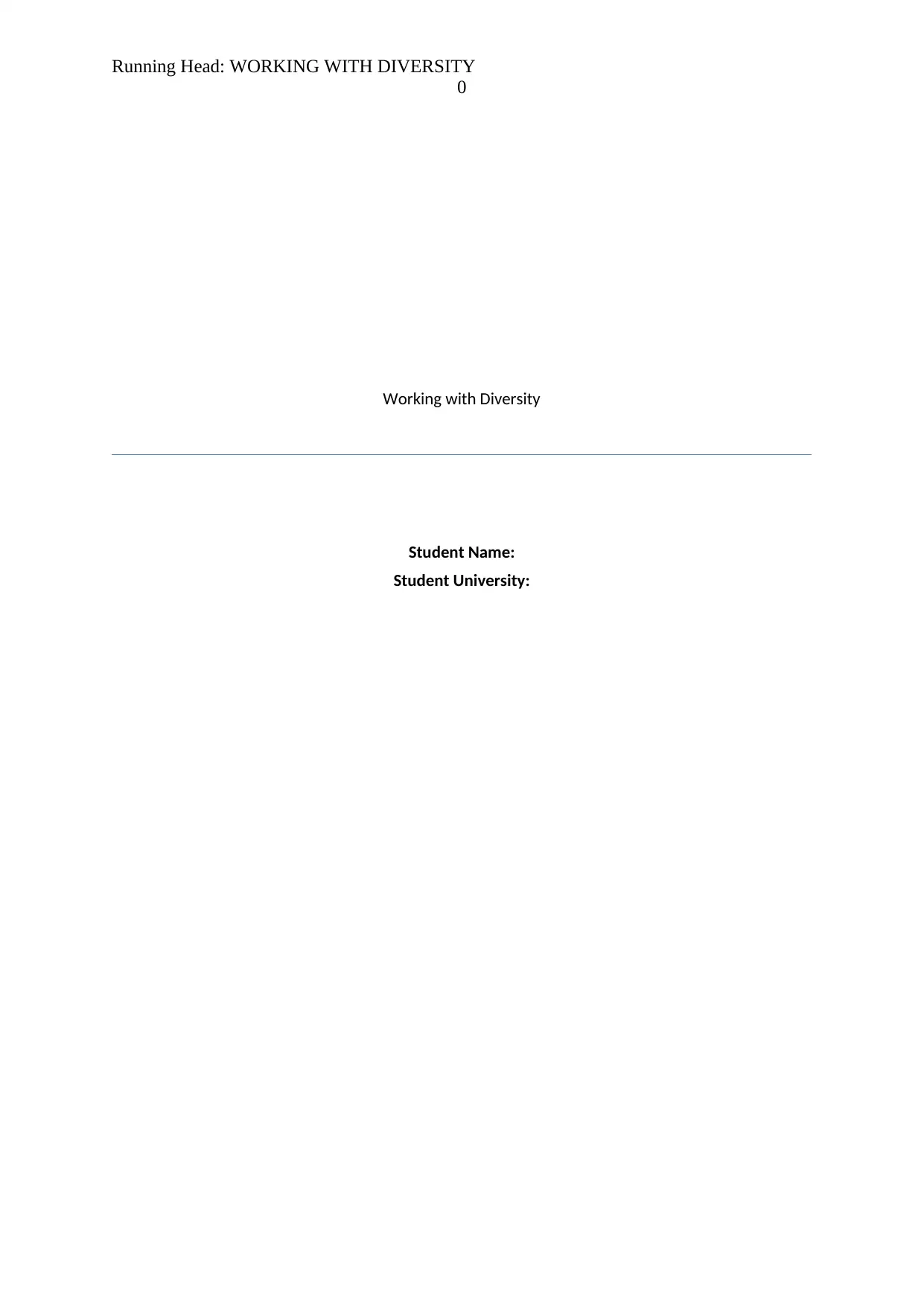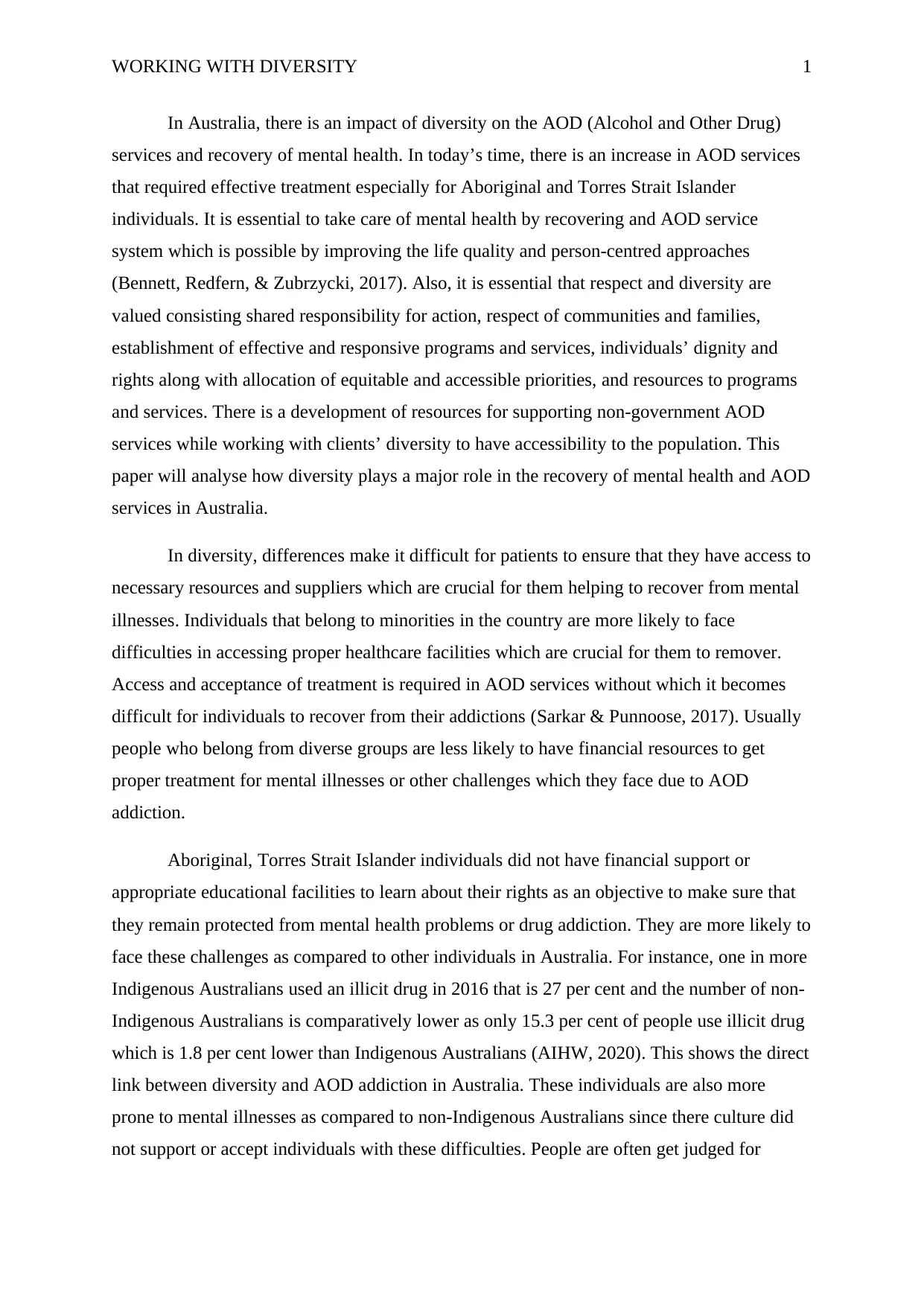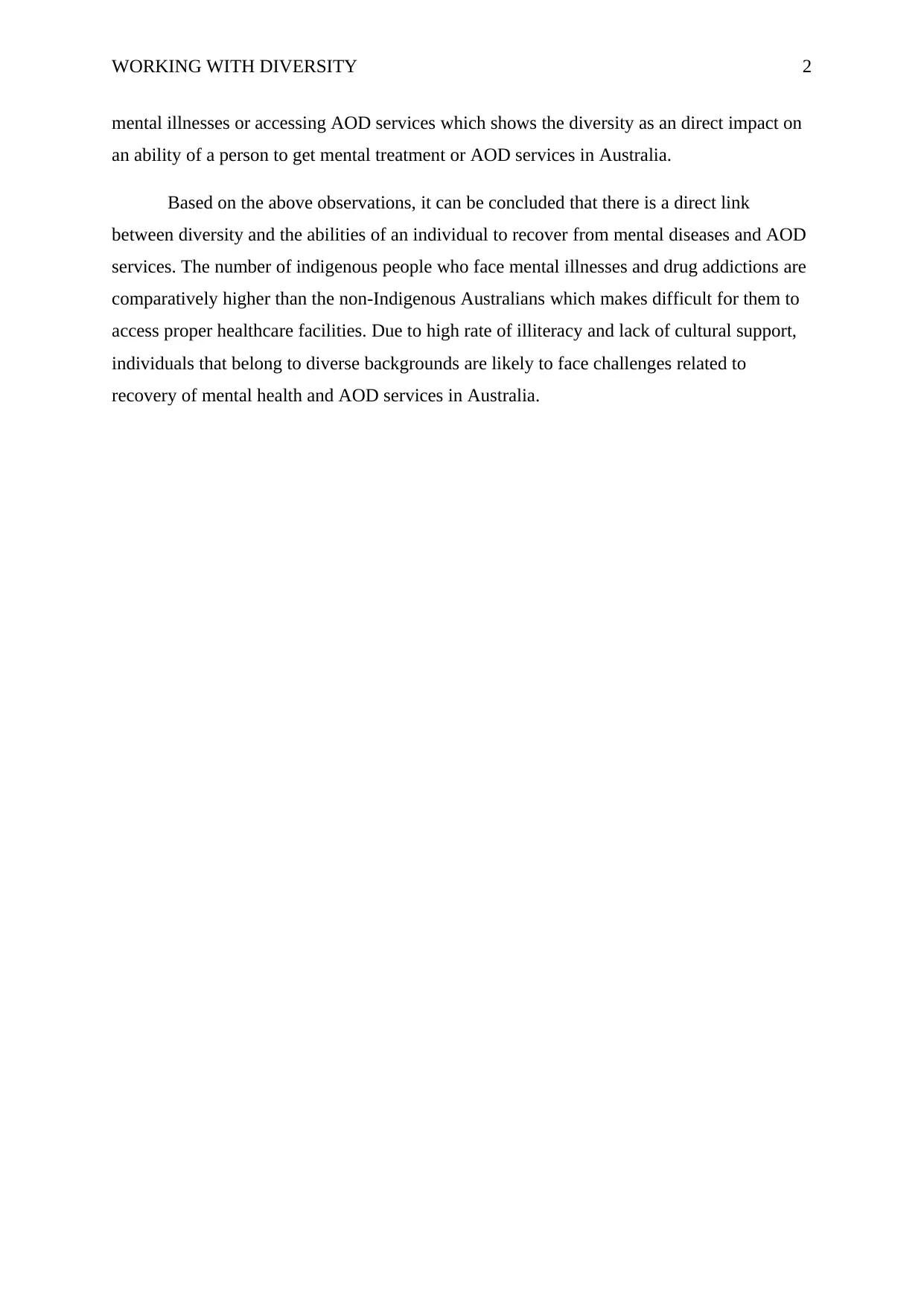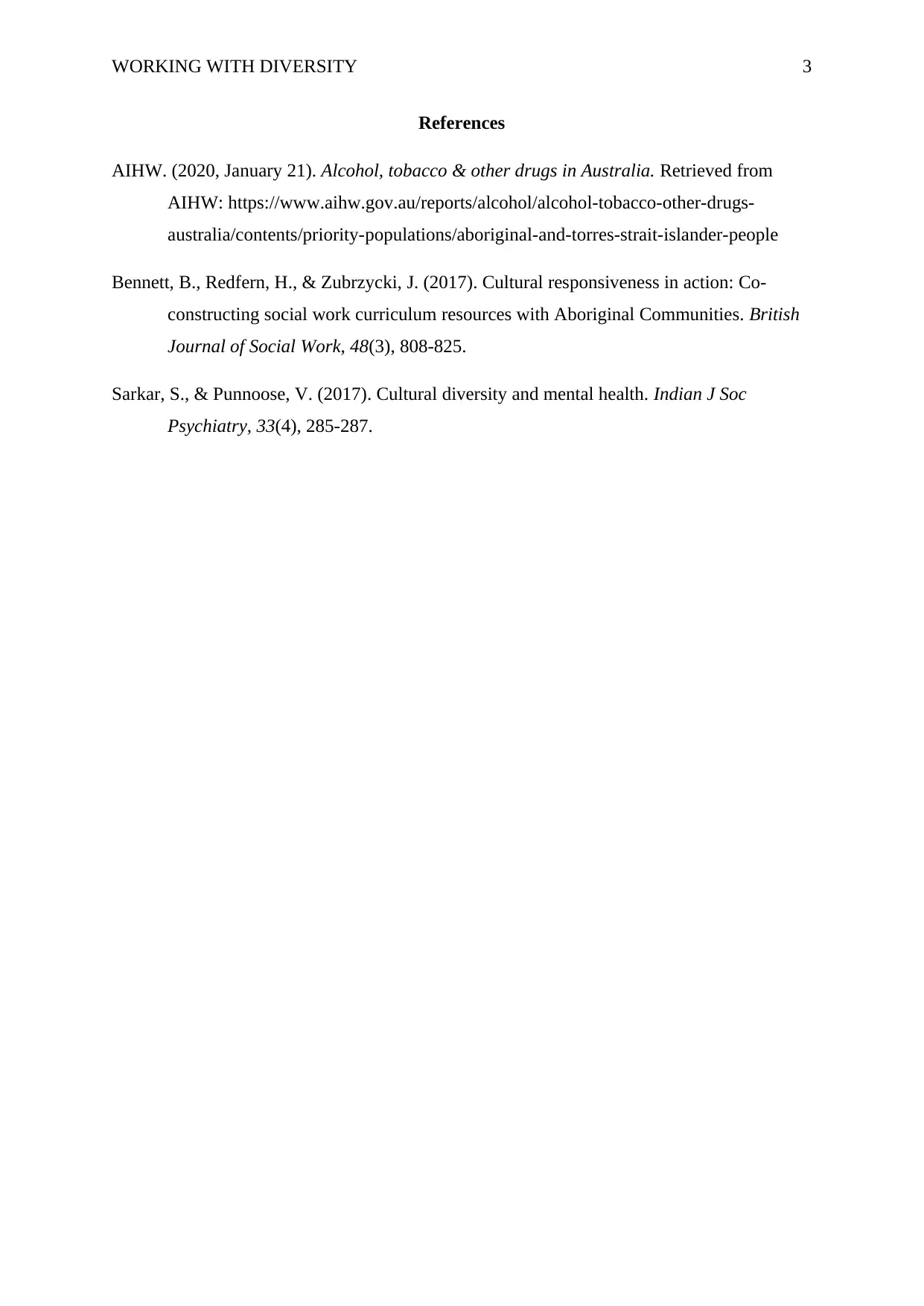The Role of Diversity in AOD Services and Mental Health Recovery
VerifiedAdded on 2022/08/25
|4
|709
|28
Report
AI Summary
This report analyzes the significant impact of diversity on Alcohol and Other Drug (AOD) services and mental health recovery in Australia. It highlights the disparities in access to healthcare and treatment faced by diverse populations, particularly Aboriginal and Torres Strait Islander individuals, who experience higher rates of substance use and mental illness compared to non-Indigenous Australians. The paper emphasizes the importance of culturally responsive approaches and person-centered care to improve outcomes. It discusses the challenges related to financial resources, educational opportunities, and cultural support, which affect the ability of diverse individuals to recover from mental health issues and AOD addictions. The report concludes that addressing diversity is crucial for creating equitable and accessible AOD services and mental health support systems in Australia.
1 out of 4











![[object Object]](/_next/static/media/star-bottom.7253800d.svg)